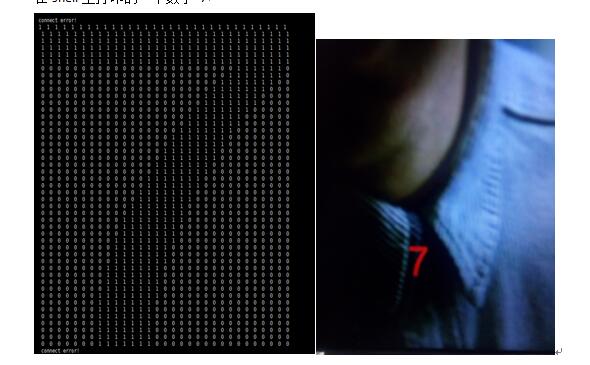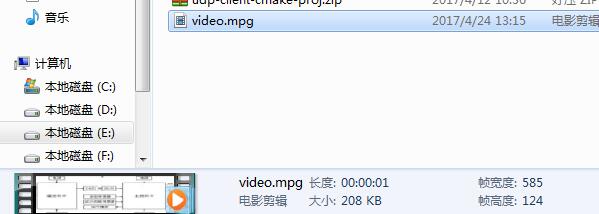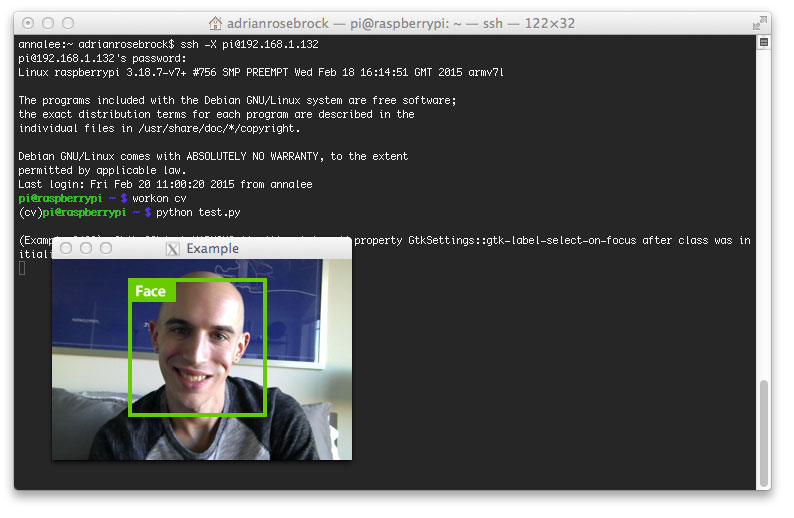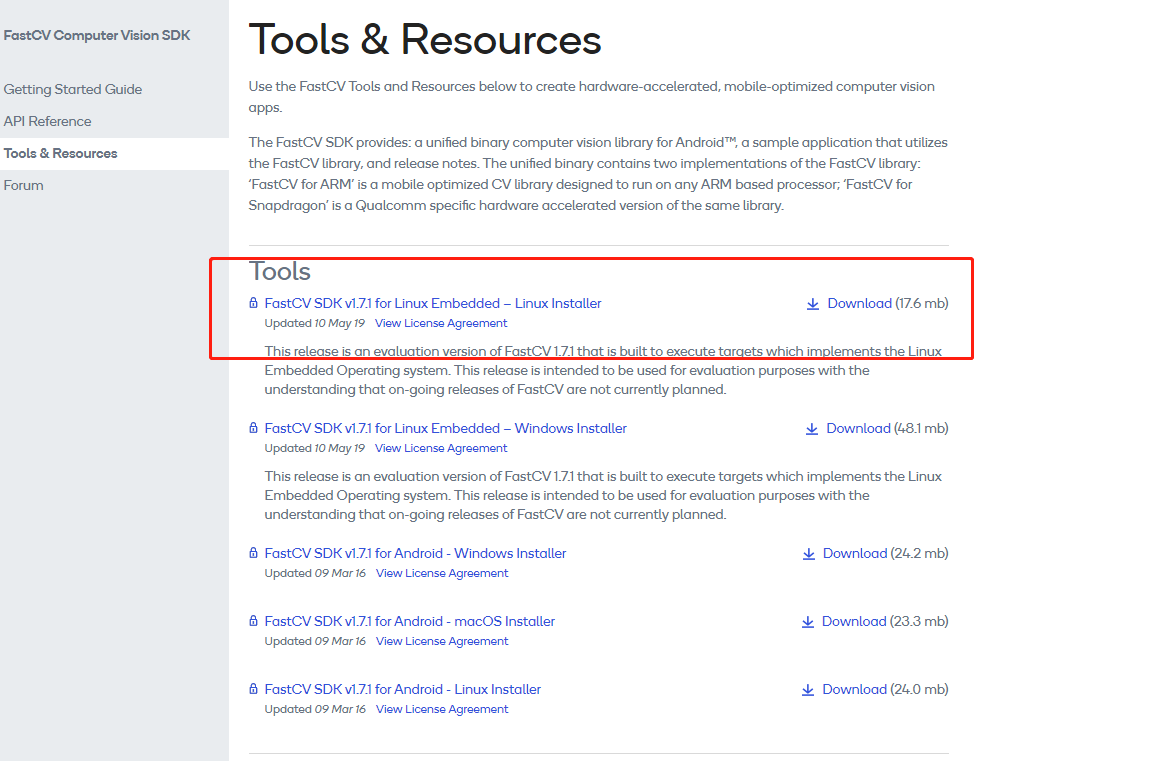/*
* V4L2 video capture example
*
* This program can be used and distributed without restrictions.
*/
#include <stdio.h>
#include <stdlib.h>
#include <string.h>
#include <assert.h>
#include <getopt.h> /* getopt_long() */
#include <fcntl.h> /* low-level i/o */
#include <unistd.h>
#include <errno.h>
#include <malloc.h>
#include <sys/stat.h>
#include <sys/types.h>
#include <sys/time.h>
#include <sys/mman.h>
#include <sys/ioctl.h>
#include <asm/types.h> /* for videodev2.h */
#include <linux/videodev2.h>
#define CLEAR(x) memset (&(x), 0, sizeof (x))
typedef enum {
IO_METHOD_READ,
IO_METHOD_MMAP,
IO_METHOD_USERPTR,
} io_method;
struct buffer {
void * start;
size_t length;
};
static char *dev_name = NULL;
static io_method io = IO_METHOD_MMAP;
static int fd = -1;
struct buffer *buffers = NULL;
static unsigned int n_buffers = 0;
static int fb_fd = -1;
static FILE *save_fd = NULL;
unsigned char buf[640*480*2];
unsigned char filebuf[640*480*3/2] = {0};
int YUV422To420(unsigned char yuv422[], unsigned char yuv420[], int width, int height)
{
int ynum=width*height;
int i,j,k=0;
//得到Y分量
for(i=0;i<ynum;i++){
yuv420[i]=yuv422[i*2];
}
//得到U分量
for(i=0;i<height;i++){
if((i%2)!=0)continue;
for(j=0;j<(width/2);j++){
if((4*j+1)>(2*width))break;
yuv420[ynum+k*2*width/4+j]=yuv422[i*2*width+4*j+1];
}
k++;
}
k=0;
//得到V分量
for(i=0;i<height;i++){
if((i%2)==0)continue;
for(j=0;j<(width/2);j++){
if((4*j+3)>(2*width))break;
yuv420[ynum+ynum/4+k*2*width/4+j]=yuv422[i*2*width+4*j+3];
}
k++;
}
return 1;
}
static void
errno_exit(const char *s)
{
fprintf (stderr, "%s error %d, %s\n", s, errno, strerror (errno));
exit (EXIT_FAILURE);
}
static int
xioctl(int fd, int request, void *arg)
{
int r;
do r = ioctl (fd, request, arg);
while (-1 == r && EINTR == errno);
return r;
}
static void
process_image(const void *p, size_t length)
{
fputc ('.', stdout);
fwrite(p, sizeof(char), length, save_fd);
fflush (stdout);
}
static void
convert_image(const void *p, size_t length)
{
YUV422To420((unsigned char*)p,filebuf,640,480);
process_image(filebuf,(640*480*3/2));
}
static int read_frame(void)
{
struct v4l2_buffer buf;
unsigned int i;
switch (io) {
case IO_METHOD_READ:
if (-1 == read (fd, buffers[0].start, buffers[0].length)) {
switch (errno) {
case EAGAIN:
return 0;
case EIO:
/* Could ignore EIO, see spec. */
/* fall through */
default:
errno_exit ("read");
}
}
process_image (buffers[0].start, buffers[0].length);
break;
case IO_METHOD_MMAP:
CLEAR (buf);
buf.type = V4L2_BUF_TYPE_VIDEO_CAPTURE;
buf.memory = V4L2_MEMORY_MMAP;
if (-1 == xioctl (fd, VIDIOC_DQBUF, &buf)) {
switch (errno) {
case EAGAIN:
return 0;
case EIO:
/* Could ignore EIO, see spec. */
/* fall through */
default:
errno_exit ("VIDIOC_DQBUF");
}
}
assert (buf.index < n_buffers);
convert_image (buffers[buf.index].start, buffers[buf.index].length);
if (-1 == xioctl (fd, VIDIOC_QBUF, &buf))
errno_exit ("VIDIOC_QBUF");
break;
case IO_METHOD_USERPTR:
CLEAR (buf);
buf.type = V4L2_BUF_TYPE_VIDEO_CAPTURE;
buf.memory = V4L2_MEMORY_USERPTR;
if (-1 == xioctl (fd, VIDIOC_DQBUF, &buf)) {
switch (errno) {
case EAGAIN:
return 0;
case EIO:
/* Could ignore EIO, see spec. */
/* fall through */
default:
errno_exit ("VIDIOC_DQBUF");
}
}
for (i = 0; i < n_buffers; ++i)
if (buf.m.userptr == (unsigned long) buffers[i].start
&& buf.length == buffers[i].length)
break;
assert (i < n_buffers);
convert_image ((void *) buf.m.userptr, buf.length);
if (-1 == xioctl (fd, VIDIOC_QBUF, &buf))
errno_exit ("VIDIOC_QBUF");
break;
}
return 1;
}
static void mainloop(void)
{
unsigned int count;
count = 100;
while (count-- > 0) {
for (;;) {
fd_set fds;
struct timeval tv;
int r;
FD_ZERO (&fds);
FD_SET (fd, &fds);
/* Timeout. */
tv.tv_sec = 2;
tv.tv_usec = 0;
r = select (fd + 1, &fds, NULL, NULL, &tv);
if (-1 == r) {
if (EINTR == errno)
continue;
errno_exit ("select");
}
if (0 == r) {
fprintf (stderr, "select timeout\n");
exit (EXIT_FAILURE);
}
if (read_frame ())
break;
/* EAGAIN - continue select loop. */
}
}
}
static void stop_capturing(void)
{
enum v4l2_buf_type type;
switch (io) {
case IO_METHOD_READ:
/* Nothing to do. */
break;
case IO_METHOD_MMAP:
case IO_METHOD_USERPTR:
type = V4L2_BUF_TYPE_VIDEO_CAPTURE;
if (-1 == xioctl (fd, VIDIOC_STREAMOFF, &type))
errno_exit ("VIDIOC_STREAMOFF");
break;
}
}
static void start_capturing(void)
{
unsigned int i;
enum v4l2_buf_type type;
switch (io) {
case IO_METHOD_READ:
/* Nothing to do. */
break;
case IO_METHOD_MMAP:
for (i = 0; i < n_buffers; ++i) {
struct v4l2_buffer buf;
CLEAR (buf);
buf.type = V4L2_BUF_TYPE_VIDEO_CAPTURE;
buf.memory = V4L2_MEMORY_MMAP;
buf.index = i;
if (-1 == xioctl (fd, VIDIOC_QBUF, &buf))
errno_exit ("VIDIOC_QBUF");
}
type = V4L2_BUF_TYPE_VIDEO_CAPTURE;
if (-1 == xioctl (fd, VIDIOC_STREAMON, &type))
errno_exit ("VIDIOC_STREAMON");
break;
case IO_METHOD_USERPTR:
for (i = 0; i < n_buffers; ++i) {
struct v4l2_buffer buf;
CLEAR (buf);
buf.type = V4L2_BUF_TYPE_VIDEO_CAPTURE;
buf.memory = V4L2_MEMORY_USERPTR;
buf.index = i;
buf.m.userptr = (unsigned long) buffers[i].start;
buf.length = buffers[i].length;
if (-1 == xioctl (fd, VIDIOC_QBUF, &buf))
errno_exit ("VIDIOC_QBUF");
}
type = V4L2_BUF_TYPE_VIDEO_CAPTURE;
if (-1 == xioctl (fd, VIDIOC_STREAMON, &type))
errno_exit ("VIDIOC_STREAMON");
break;
}
}
static void
uninit_device(void)
{
unsigned int i;
switch (io) {
case IO_METHOD_READ:
free (buffers[0].start);
break;
case IO_METHOD_MMAP:
for (i = 0; i < n_buffers; ++i)
if (-1 == munmap (buffers[i].start, buffers[i].length))
errno_exit ("munmap");
break;
case IO_METHOD_USERPTR:
for (i = 0; i < n_buffers; ++i)
free (buffers[i].start);
break;
}
free (buffers);
}
static void init_read(unsigned int buffer_size)
{
buffers = calloc (1, sizeof (*buffers));
if (!buffers) {
fprintf (stderr, "Out of memory\n");
exit (EXIT_FAILURE);
}
buffers[0].length = buffer_size;
buffers[0].start = malloc (buffer_size);
if (!buffers[0].start) {
fprintf (stderr, "Out of memory\n");
exit (EXIT_FAILURE);
}
}
static void init_mmap(void)
{
struct v4l2_requestbuffers req;
CLEAR (req);
req.count = 4;
req.type = V4L2_BUF_TYPE_VIDEO_CAPTURE;
req.memory = V4L2_MEMORY_MMAP;
if (-1 == xioctl (fd, VIDIOC_REQBUFS, &req)) {
if (EINVAL == errno) {
fprintf (stderr, "%s does not support "
"memory mapping\n", dev_name);
exit (EXIT_FAILURE);
} else {
errno_exit ("VIDIOC_REQBUFS");
}
}
if (req.count < 2) {
fprintf (stderr, "Insufficient buffer memory on %s\n",
dev_name);
exit (EXIT_FAILURE);
}
buffers = calloc (req.count, sizeof (*buffers));
if (!buffers) {
fprintf (stderr, "Out of memory\n");
exit (EXIT_FAILURE);
}
for (n_buffers = 0; n_buffers < req.count; ++n_buffers) {
struct v4l2_buffer buf;
CLEAR (buf);
buf.type = V4L2_BUF_TYPE_VIDEO_CAPTURE;
buf.memory = V4L2_MEMORY_MMAP;
buf.index = n_buffers;
if (-1 == xioctl (fd, VIDIOC_QUERYBUF, &buf))
errno_exit ("VIDIOC_QUERYBUF");
buffers[n_buffers].length = buf.length;
buffers[n_buffers].start =
mmap (NULL /* start anywhere */,
buf.length,
PROT_READ | PROT_WRITE /* required */,
MAP_SHARED /* recommended */,
fd, buf.m.offset);
if (MAP_FAILED == buffers[n_buffers].start)
errno_exit ("mmap");
}
}
static void init_userp(unsigned int buffer_size)
{
struct v4l2_requestbuffers req;
unsigned int page_size;
page_size = getpagesize();
buffer_size = (buffer_size + page_size - 1) & ~(page_size - 1);
CLEAR (req);
req.count = 4;
req.type = V4L2_BUF_TYPE_VIDEO_CAPTURE;
req.memory = V4L2_MEMORY_USERPTR;
if (-1 == xioctl (fd, VIDIOC_REQBUFS, &req)) {
if (EINVAL == errno) {
fprintf (stderr, "%s does not support "
"user pointer i/o\n", dev_name);
exit (EXIT_FAILURE);
} else {
errno_exit ("VIDIOC_REQBUFS");
}
}
buffers = calloc(4, sizeof (*buffers));
if (!buffers) {
fprintf (stderr, "Out of memory\n");
exit (EXIT_FAILURE);
}
for (n_buffers = 0; n_buffers < 4; ++n_buffers) {
buffers[n_buffers].length = buffer_size;
buffers[n_buffers].start = memalign (/* boundary */ page_size,
buffer_size);
if (!buffers[n_buffers].start) {
fprintf (stderr, "Out of memory\n");
exit (EXIT_FAILURE);
}
}
}
static void init_device(void)
{
struct v4l2_capability cap;
struct v4l2_cropcap cropcap;
struct v4l2_crop crop;
struct v4l2_format fmt;
unsigned int min;
int ret =-1;
struct v4l2_fmtdesc fmtdesc;
printf("VIDIOC_QUERYCAP\n");
if (-1 == xioctl (fd, VIDIOC_QUERYCAP, &cap)) {
if (EINVAL == errno) {
fprintf (stderr, "%s is no V4L2 device\n",
dev_name);
exit (EXIT_FAILURE);
} else {
errno_exit ("VIDIOC_QUERYCAP");
}
}
printf("V4L2_CAP_VIDEO_CAPTURE\n");
if (!(cap.capabilities & V4L2_CAP_VIDEO_CAPTURE)) {
fprintf (stderr, "%s is no video capture device\n",
dev_name);
exit (EXIT_FAILURE);
}
switch (io) {
case IO_METHOD_READ:
if (!(cap.capabilities & V4L2_CAP_READWRITE)) {
fprintf (stderr, "%s does not support read i/o\n",
dev_name);
exit (EXIT_FAILURE);
}
break;
case IO_METHOD_MMAP:
case IO_METHOD_USERPTR:
if (!(cap.capabilities & V4L2_CAP_STREAMING)) {
fprintf (stderr, "%s does not support streaming i/o\n",
dev_name);
exit (EXIT_FAILURE);
}
break;
}
/* Select video input, video standard and tune here. */
CLEAR (cropcap);
cropcap.type = V4L2_BUF_TYPE_VIDEO_CAPTURE;
printf("VIDIOC_CROPCAP\n");
if (0 == xioctl (fd, VIDIOC_CROPCAP, &cropcap)) {
crop.type = V4L2_BUF_TYPE_VIDEO_CAPTURE;
crop.c = cropcap.defrect; /* reset to default */
if (-1 == xioctl (fd, VIDIOC_S_CROP, &crop)) {
switch (errno) {
case EINVAL:
/* Cropping not supported. */
break;
default:
/* Errors ignored. */
break;
}
}
} else {
/* Errors ignored. */
}
printf("VIDIOC_ENUM_FMT **********\n");
memset(&fmtdesc, 0, sizeof(struct v4l2_fmtdesc));
fmtdesc.index =0;
fmtdesc.type=V4L2_BUF_TYPE_VIDEO_CAPTURE;
while(ioctl(fd, VIDIOC_ENUM_FMT, &fmtdesc) !=-1)
{
printf("pixelformat = ''%c%c%c%c''\ndescription = ''%s''\n",fmtdesc.pixelformat & 0xFF,\
(fmtdesc.pixelformat >> 8) & 0xFF,(fmtdesc.pixelformat >> 16) & 0xFF,\
(fmtdesc.pixelformat >> 24) & 0xFF,fmtdesc.description);
fmtdesc.index++;
}
printf("%d",ret);
CLEAR (fmt);
fmt.type = V4L2_BUF_TYPE_VIDEO_CAPTURE;
fmt.fmt.pix.width = 640;
fmt.fmt.pix.height = 480;
fmt.fmt.pix.pixelformat = V4L2_PIX_FMT_YUV420;//V4L2_PIX_FMT_YUV420 ;//V4L2_PIX_FMT_YUYV;
fmt.fmt.pix.field = V4L2_FIELD_ANY;//V4L2_FIELD_INTERLACED
if (-1 == ioctl (fd, VIDIOC_S_FMT, &fmt))
errno_exit ("VIDIOC_S_FMT");
/* Note VIDIOC_S_FMT may change width and height. */
/* Buggy driver paranoia. */
min = fmt.fmt.pix.width * 2;
if (fmt.fmt.pix.bytesperline < min)
fmt.fmt.pix.bytesperline = min;
min = fmt.fmt.pix.bytesperline * fmt.fmt.pix.height;
if (fmt.fmt.pix.sizeimage < min)
fmt.fmt.pix.sizeimage = min;
struct v4l2_format fmt_get;
CLEAR (fmt_get);
fmt_get.type = V4L2_BUF_TYPE_VIDEO_CAPTURE;
if (-1 == xioctl (fd, VIDIOC_G_FMT, &fmt_get))
errno_exit ("VIDIOC_G_FMT");
//fmt_get.fmt.pix.pixelformat ;//V4L2_PIX_FMT_YUV420 ;//V4L2_PIX_FMT_YUYV;
// Print Stream Format
printf("Stream Format Informations:\n");
printf(" type: %d\n", fmt_get.type);
printf(" width: %d\n", fmt_get.fmt.pix.width);
printf(" height: %d\n", fmt_get.fmt.pix.height);
char fmtstr[8];
memset(fmtstr, 0, 8);
memcpy(fmtstr, &fmt_get.fmt.pix.pixelformat, 4);
printf("get support format:: \n");
printf(" pixelformat: %s\n", fmtstr);
printf(" field: %d\n", fmt_get.fmt.pix.field);
printf(" bytesperline: %d\n", fmt_get.fmt.pix.bytesperline);
printf(" sizeimage: %d\n", fmt_get.fmt.pix.sizeimage);
printf(" colorspace: %d\n", fmt_get.fmt.pix.colorspace);
printf(" priv: %d\n", fmt_get.fmt.pix.priv);
printf(" raw_date: %s\n", fmt_get.fmt.raw_data);
switch (io) {
case IO_METHOD_READ:
init_read (fmt.fmt.pix.sizeimage);
break;
case IO_METHOD_MMAP:
init_mmap ();
break;
case IO_METHOD_USERPTR:
init_userp (fmt.fmt.pix.sizeimage);
break;
}
}
static void
close_device (void)
{
if (-1 == close (fd))
errno_exit ("close");
fd = -1;
}
static void open_device(void)
{
struct stat st;
if (-1 == stat (dev_name, &st)) {
fprintf (stderr, "Cannot identify '%s': %d, %s\n",
dev_name, errno, strerror (errno));
exit (EXIT_FAILURE);
}
if (!S_ISCHR (st.st_mode)) {
fprintf (stderr, "%s is no device\n", dev_name);
exit (EXIT_FAILURE);
}
fd = open (dev_name, O_RDWR /* required */ | O_NONBLOCK, 0);
if (-1 == fd) {
fprintf (stderr, "Cannot open '%s': %d, %s\n",
dev_name, errno, strerror (errno));
exit (EXIT_FAILURE);
}
}
static void usage(FILE *fp, int argc, char **argv)
{
fprintf (fp,
"Usage: %s [options]\n\n"
"Options:\n"
"-d | --device name Video device name [/dev/video]\n"
"-h | --help Print this message\n"
"-m | --mmap Use memory mapped buffers\n"
"-r | --read Use read() calls\n"
"-u | --userp Use application allocated buffers\n"
"",
argv[0]);
}
static const char short_options [] = "d:hmru";
static const struct option
long_options [] = {
{ "device", required_argument, NULL, 'd' },
{ "help", no_argument, NULL, 'h' },
{ "mmap", no_argument, NULL, 'm' },
{ "read", no_argument, NULL, 'r' },
{ "userp", no_argument, NULL, 'u' },
{ 0, 0, 0, 0 }
};
int main(int argc, char **argv)
{
dev_name = "/dev/video1";
save_fd = fopen("test.yuv", "w");
open_device ();
init_device ();
start_capturing ();
mainloop ();
stop_capturing ();
uninit_device ();
close_device ();
fclose(save_fd);
exit (EXIT_SUCCESS);
return 0;
}







